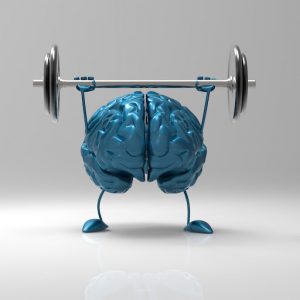Improve Your Concentration and Overall Health with Quality Brain Fog Treatment
Are you having difficulty focusing on a line of thoughts, recollecting memories, concentrating at work, or often losing what you wanted to say during a conversation? You might be experiencing something called brain fog. Most people experience these symptoms, but as you get older, they tend to occur more often. The symptoms become worse when we overwork ourselves, do not get enough sleep, spend way too much time in front of the screen, experience increased stress, or are exposed to certain toxins.
While there is no standard medical definition for lack of mental clarity or brain fog, it is known for a number of common symptoms. When you experience brain fog, it’s important to get a brain fog treatment that can help you improve your health. It will, most often, not go away by ignoring it. Instead, it can impact the quality of your life negatively, and even lead to other conditions like Parkinson’s disease, memory loss, and Alzheimer’s disease. Our Cognitive Brain Training is designed to help remediate (not rehabilitate) cognitive and executive function deficits.
What Is Brain Fog Treatment?
Brain fog treatment is typically aimed at improving the symptoms of patients experiencing brain fog or mental fog. Brain fog can be caused by several factors, and because of this, treatment is often tailored to address the specific cause of the symptom. For instance, sleeping early, avoiding screens before sleep, and getting enough sleep can help to clear your head and improve your condition.
 Keep in mind that there is no specific medication or globally-adopted treatment for brain fog. It doesn’t also have a single medical diagnosis. Brain fog is characterized by confusion, forgetfulness, and a lack of focus and mental clarity. On a cellular level, experts believe that brain fog is caused by high levels of inflammation and hormonal imbalance, which affect your ability to focus, your mood, and your energy. If untreated, brain fog symptoms can degenerate into other conditions, such as diabetes mellitus. Researchers have also shown that 20-30% of people may experience brain fog after COVID-19.
Keep in mind that there is no specific medication or globally-adopted treatment for brain fog. It doesn’t also have a single medical diagnosis. Brain fog is characterized by confusion, forgetfulness, and a lack of focus and mental clarity. On a cellular level, experts believe that brain fog is caused by high levels of inflammation and hormonal imbalance, which affect your ability to focus, your mood, and your energy. If untreated, brain fog symptoms can degenerate into other conditions, such as diabetes mellitus. Researchers have also shown that 20-30% of people may experience brain fog after COVID-19.
Causes Brain Fog?
There are a number of factors that cause brain fog. Experts believe that the following are elements that lead to the development of brain fog.
High-level of hormonal changes during pregnancy
COVID-19 and related symptoms (mostly reported in long-haulers)
Depression and anxiety
Auto-immune diseases, such as lupus, multiple sclerosis, etc.
Lack of sleep and poor or no exercise
Electromagnetic radiation from your computer, mobile phones, and other smart devices
Reduced blood flow to the brain
Low blood sugar levels
Amino acids, vitamins, minerals, and antioxidants contained in your diet
Chemotherapy that triggers a cytokine storm
Pollution, chemical substances, Toxins, and insecticides
Food sensitivities
Symptoms of Brain Fog
There is no universal method of diagnoses, but when you experience these symptoms, consider getting a brain fog treatment.
Trouble sleeping, insomnia
Trouble focusing or difficulty staying attentive
Headaches
Impaired cognitive function
Forgetfulness or having trouble remembering important details, such as names, places, or words
Mood swings
Low energy, lack of motivation, or fatigue
Frequent loss of train of thought
Irritation
Is Brain Fog Treatment Possible, and How Does it Work?
 Brain fog can actually be frustrating for anyone experiencing it, but is a treatable condition. However, there is no standard treatment method or specific medication that is used to treat brain fog. Typically, brain fog treatment is directed at reversing the conditions that cause it. For instance, if you’re overworking yourself and finding it difficult to process your thoughts, experts recommend getting adequate rest and sleeping well.
Brain fog can actually be frustrating for anyone experiencing it, but is a treatable condition. However, there is no standard treatment method or specific medication that is used to treat brain fog. Typically, brain fog treatment is directed at reversing the conditions that cause it. For instance, if you’re overworking yourself and finding it difficult to process your thoughts, experts recommend getting adequate rest and sleeping well.
If you want to immediately eliminate most of the stressors that lead to brain fog, then you want to focus more on sleeping, reducing your screen time, especially before bed, eating well, and exercising regularly. These are small changes that can create a cumulative effect that improves your life. Consider treating your brain like a muscle and make sure it gets regular exercise, say solving problems, puzzles, reading a book, learning a new skill that will help you at work, enrolling in courses, etc.
There is no universal method of diagnoses, but when you experience these symptoms, consider getting a brain fog treatment.
Staying physically active
Exercising your brain
Getting at least 7–9 hours of sleep every night
Sticking to a regular sleep routine
Changing your diet
Finding enjoyable activities
Going to bed at the same time every night, latest midnight
Avoiding screens before bedtime
Doing away with alcohol and smoking
Consulting an Expert for Brain Fog Treatment
Mental decline, especially poor memory is common as we age. But there are ways you can still maintain sharp cognitive functions and avoid or treat brain fog. Consulting a specialist is often recommended when you’re not sure what to do. Based on experience, an expert knows how to help you navigate the challenges that come with brain fog and offer you treatments that’ll help you improve your brain function.
Our experts at The Hartman Center can also help to recommend supplements and exercise routines that will help you regain optimal function of your brain. The Hartman Center is a Functional Neurologist based in New Jersey and specializes in Brain Injury Treatment and helping you get your life back.